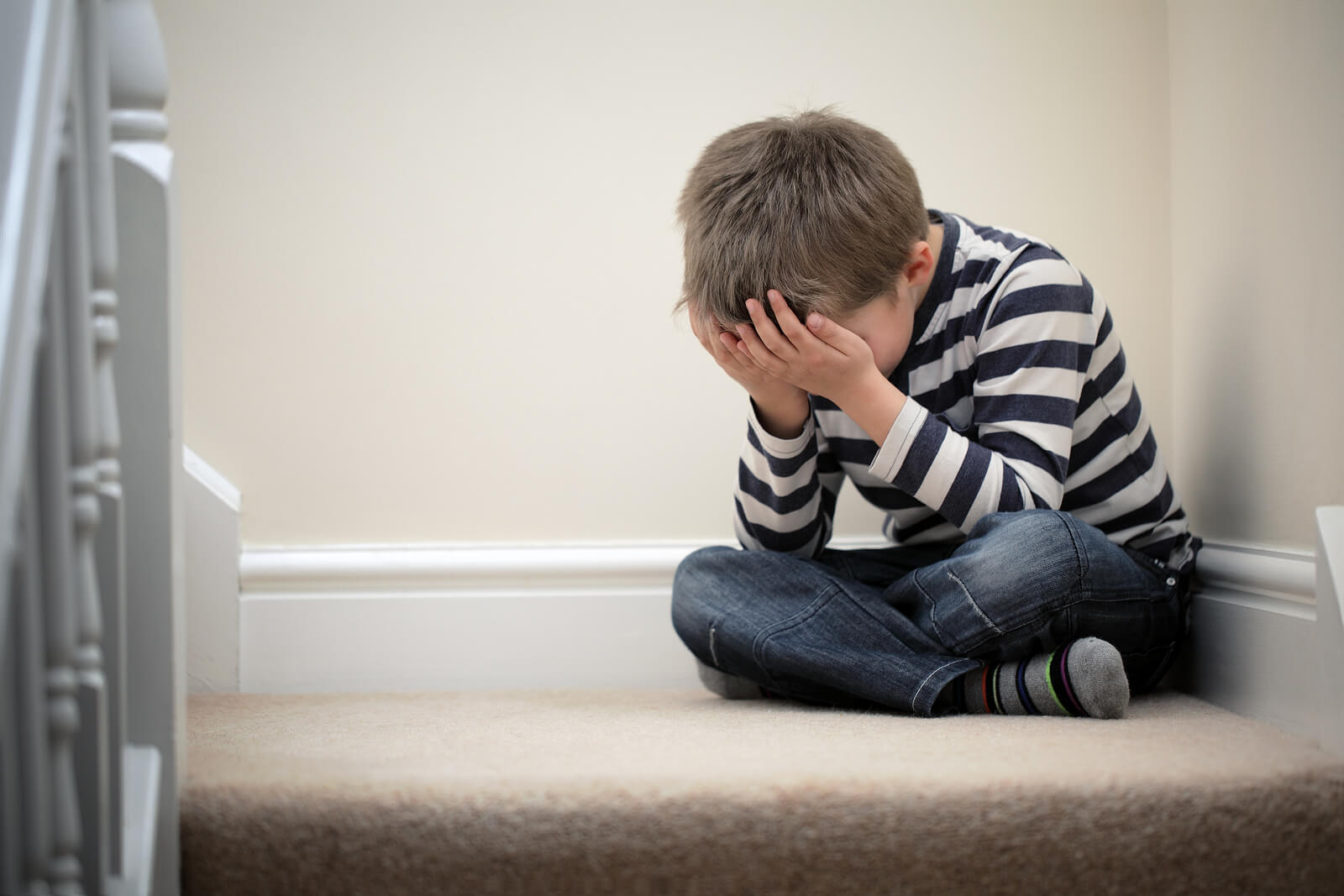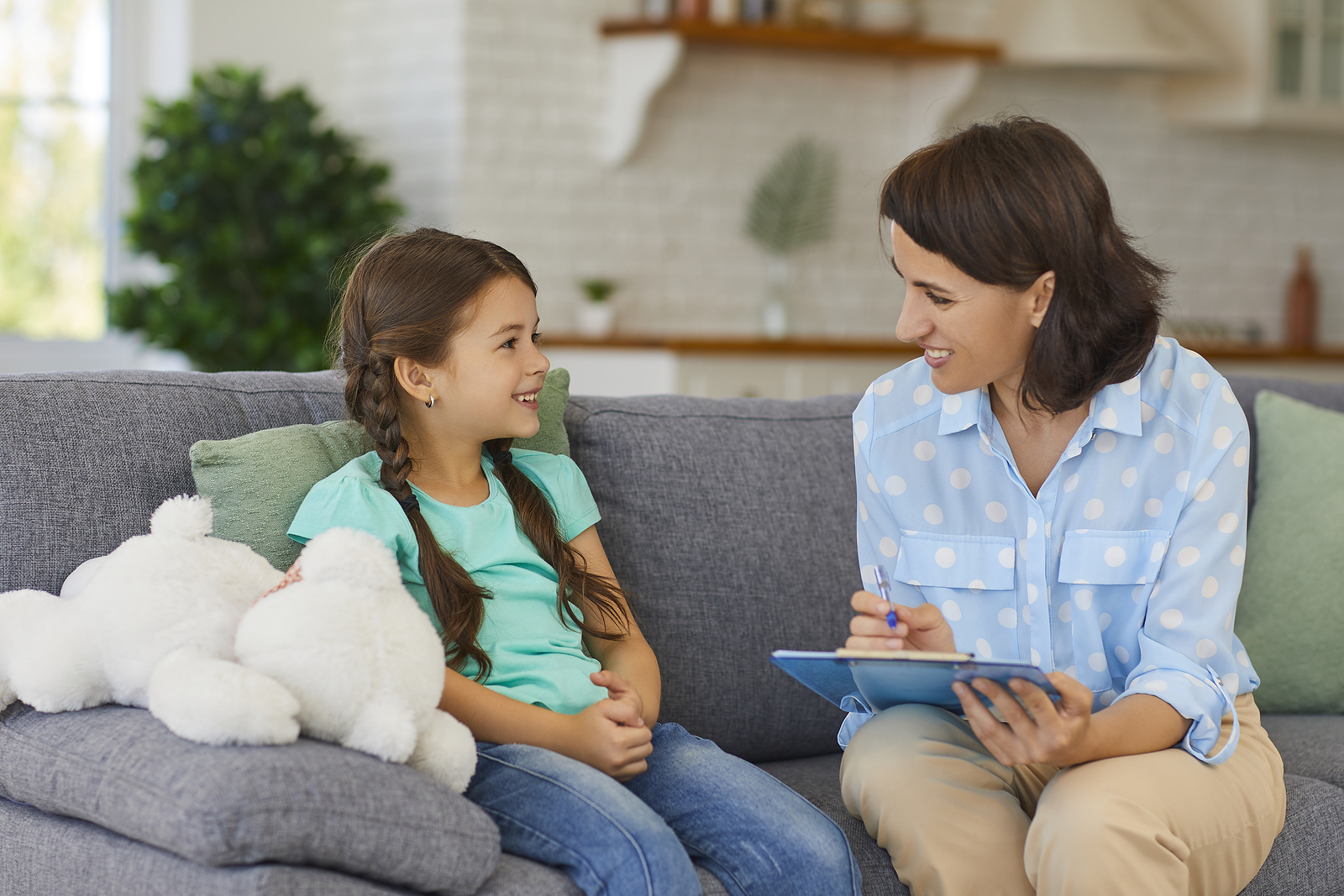Written by Rob Peterman, LAC
As a parent, you want what’s best for your child and for them to feel happy, healthy, and like their true selves. We know that it can be hard to see your child struggle emotionally, and it can be just as challenging for parents to not understand why. Your child’s behavioral challenges might be a result of them struggling with their emotions, and here’s why.
When children struggle with emotional challenges, it’s not always immediately clear how these difficulties begin. Understanding the connection between emotional and behavioral challenges in children is crucial for parents, educators, and mental health professionals. While emotions are a natural part of human development, when a child’s emotional needs go unmet or when they lack the coping skills to manage their feelings, these difficulties can often present themselves as behavioral problems.
Often, emotions such as anxiety, sadness, frustration, or fear can display themselves as disruptive or challenging behaviors. This connection between emotional struggles and behavioral issues in children is not always understood, but it’s critical for parents, caregivers, and educators to recognize it so that children can receive the appropriate support and care. Therapy for children can provide a safe space to develop emotional regulation skills, build resilience, and address the root causes of these struggles. At DBT of South Jersey, we’re here to help.

The Emotional and Behavioral Connection in Children
Children, like adults, are emotional by nature and experience a range of feelings. A key difference is that children are still in the process of developing the skills needed to understand and manage those emotions. When an adult faces emotional difficulties or challenges, they are more likely to use their words and communicate how they are feeling. They also have an easier time self-identifying what the problem is. When a child on the other hand faces unresolved emotional difficulties, they may not always know how to manage or communicate complex feelings like frustration, sadness, or anxiety. Those feelings can be expressed through their behaviors and result in outbursts, tantrums, withdrawal, or other behaviors that may be concerning to parents. This can also be because they may not have the vocabulary or tools to cope effectively just yet.
Behavioral Challenges
Behavioral challenges in children can take many forms. Here are a few examples of how your child may display their emotions:
- Aggression: Hitting, biting, or verbal outbursts in response to frustration or anger.
- Defiance: Refusing to comply with instructions or rules, testing boundaries, or arguing with authority figures.
- Impulsivity: Acting without thinking, interrupting conversations, or making poor decisions.
- Withdrawal: Avoiding social interactions, becoming easily overwhelmed, or showing signs of anxiety. They might also react inappropriately when they feel threatened or misunderstood, leading to further isolation or conflict.
- Tantrums or meltdowns: Intense emotional outbursts that are disproportionate to the situation, often in response to feeling misunderstood or overwhelmed.
- Anxiety: A child experiencing anxiety may act out in school or at home because they are overwhelmed by their emotions, unable to express their fear or uncertainty in a more constructive way.
- Grief: A child with unresolved grief might act out with anger or isolation, as they have trouble processing their sadness or loss.
- Low Self-Esteem: Children with low self-esteem or feelings of inadequacy may display behavioral problems such as withdrawing socially or acting out in an attempt to get attention or validation.
- Internal vs. External Responses: Some children internalize their emotional pain, which may lead to withdrawal, depression, or anxiety-based behaviors. Others externalize their emotions, leading to more outwardly visible behavioral problems like aggression or noncompliance. Both responses stem from an inability to manage intense emotional experiences effectively.
In many cases, the behaviors that adults find troubling—whether it’s aggression, defiance, excessive withdrawal, acting out in school, talking back, or difficulty focusing—are symptoms of deeper emotional challenges. These emotional difficulties might include trauma, unresolved grief, depression, or anxiety. It’s important that if you notice any of these behaviors you consider reaching out to a therapist for support. Early intervention can be extremely helpful and prevent cyclical patterns.
Why Emotional and Behavioral Challenges Benefit from Support With Therapy For Children
What makes the connection between emotions and behaviors challenging is the cyclical nature of the problem. When a child acts out or exhibits challenging behaviors, it often results in negative feedback from parents, teachers, or peers. This negative feedback may worsen the child’s emotional state, and intensify the child’s difficulties.
For instance, a child who is bullied at school might begin to act out to protect themselves, but their behavior is misinterpreted by others as a sign of defiance or disrespect. The child might then feel more isolated, leading to heightened anxiety, sadness, or anger—and the cycle continues.
Another example is children who struggle with controlling their anger. As a result, the child might act out aggressively when they feel angry or frustrated. This behavior can lead to social rejection or punishment, which makes the child’s feelings of loneliness or insecurity worse. This cyclical relationship between emotional dysregulation and behavioral problems can make it difficult for children to break free from negative patterns. However, with the right therapeutic intervention, this cycle can be disrupted.

How Therapy For Children Can Help Address Both Emotional and Behavioral Challenges
One of the most effective ways to break this cycle is through therapy. A child therapist can work with children to help them understand and express their emotions in healthier ways, while also addressing the behavioral challenges that arise from these emotions. Therapy not only offers a safe space for children to talk about what they’re feeling, but it also helps them to gain insight into their emotions. Therapy can help children learn how to observe, label, and describe their emotions in a healthier way so that parents, guardians, and even the children themselves can help them cope in more mindful ways. Therapy can also teach children how their emotions are connected to their behaviors. It can help validate the child and make them feel understood for responding in certain ways. Therapy can also provide children with essential coping tools. Here are a few ways that therapy can help:
- Emotional Regulation Skills: Children can learn to identify their emotions and develop strategies to manage them, such as deep breathing, mindfulness, or positive self-talk.
- Problem-Solving Skills: Therapy can help children develop more adaptive ways of handling difficult situations, and reducing impulsive or disruptive behaviors.
- Communication Skills: Therapy helps children express themselves verbally and can reduce the likelihood of them acting out when they feel misunderstood or frustrated.
- Building Self-Esteem: Therapy can help children by improving their self-worth and developing healthier self-concepts, which can reduce the likelihood of behaviors driven by insecurity or low self-esteem.
- Mindfulness: Therapy can help improve a child’s mindfulness. This involves being fully present in the moment, without judgment, and the child learns how to recognize their feelings and bodily sensations as they arise. Mindfulness also helps children develop self-control, allowing them to pause before reacting impulsively. In DBT therapy, children are taught to use mindfulness techniques to calm themselves during stressful moments and to manage difficult emotions before they escalate.
DBT Therapy and Its Role in Addressing Both Emotional and Behavioral Challenges
Dialectical Behavior Therapy (DBT) is here to help children and adolescents facing emotional and behavioral challenges. DBT focuses on helping individuals develop skills to regulate emotions, tolerate distress, and improve interpersonal relationships, which makes it highly effective in addressing both emotional and behavioral difficulties.
Here’s how DBT skills can help:
- Emotional Regulation: DBT teaches children how to identify, label, and manage their emotions in a healthy way. By using techniques such as mindfulness and emotional validation, DBT helps children understand that their emotions are valid, but they can also learn strategies to avoid reacting impulsively or inappropriately.
- Distress Tolerance: Children who struggle with intense emotional reactions can benefit from DBT’s focus on distress tolerance skills. These skills help children manage difficult situations without acting on harmful or disruptive behaviors. For example, instead of acting out in anger, a child might learn to self-soothe, use grounding techniques, or practice deep breathing.
- Interpersonal Effectiveness: Children with emotional and behavioral difficulties may struggle with relationships. DBT emphasizes improving communication skills, teaching children how to ask for what they need, and resolving conflicts more effectively. This is crucial in preventing emotional overload that can lead to acting out.
- Behavioral Skills: DBT incorporates skills and strategies that help children learn how to engage in positive behaviors that serve their emotional needs, rather than resorting to destructive actions.
- Validation and Support: Validation is a key factor in DBT. It helps acknowledge to the child that their emotions are valid without expressing any judgment. This validation can help reduce feelings of frustration and lead your child to feel more supported as they navigate through these challenges.
DBT Provides a Holistic Approach
DBT can be beneficial for you and your child because it provides a holistic approach. It helps to address the underlying emotional challenges such as anxiety, sadness, or frustration that contribute to behavioral issues, and it helps children develop a more balanced, positive way of interacting with the world.
When both emotional and behavioral issues are treated together, children are equipped to better manage their feelings and express themselves in healthier, more constructive ways. DBT empowers children to build healthier coping mechanisms, leading to long-term improvements in their emotional well-being and overall behavior.
The ultimate goal of DBT is to help children learn how to respond to life’s challenges without getting overwhelmed by their emotions. DBT can help by teaching them how to recognize the early signs of anger or frustration and use coping strategies to prevent those emotions from escalating into harmful actions. With consistent practice, children can learn how to regulate their emotions before they lead to outbursts, allowing for healthier emotional expression and better behavioral outcomes.
Why Work With Us?
Many of us are parents ourselves, and several of our team members are dedicated to helping children, teens, and their parents feel empowered as they build emotional resilience and thrive. We know that making the choice for your child to start therapy or change therapists is not an easy one, regardless of their age! Know that our team’s compassionate support will have you feeling at ease as positive change begins.
It’s important to remember that the link between emotional and behavioral challenges in children is undeniable, and addressing both aspects simultaneously is essential for long-term success. When children struggle with emotional dysregulation, their behaviors often reflect that inner struggle, leading to problems at school, home, and in social settings. DBT offers a comprehensive approach to helping children manage their emotions, break the cycle of negative behavior, and build healthier relationships.
DBT Can Help Your Child Take Control of Their Emotions
By teaching children mindfulness, distress tolerance, emotion regulation, and interpersonal effectiveness, DBT empowers your child to take control of their emotional experiences and respond to challenges in a healthier way. Whether your child is struggling with anxiety, or anger, or having difficulties with their emotions or behaviors, DBT can provide the tools they need to develop emotional resilience and improve their overall functioning.
As more children benefit from DBT, it’s important for parents and caregivers to recognize the role that emotions play in their child’s behavior and to seek out therapeutic interventions that address both. With the right support, children can learn how to navigate the complexities of their emotions and behaviors, leading to a brighter, more balanced future.
It is our absolute privilege to be a mental health support to the youth and families of South Jersey, and we love the work we do. Book a session today and empower your child’s journey towards the future they are meant for.
Please feel free to read more information on how DBT can help your child:
- Home | DBT-Linehan Board of Certification (dbt-lbc.org)
- Curated DBT Related Information – BTech Knowledge Center (behavioraltech.org)
Additional support and resources:
- NAMI – NAMI | National Alliance on Mental Illness
- Call or text the 988 Lifeline
- Trans Lifeline-(877) 565-8860
- NJ Parents of children and teens in crisis can call Performcare at (877) 652-7624

Find Support Helping Your Child Manage Their Emotions and Behaviors With Therapy for Children in South Jersey
At DBT of South Jersey, we offer therapy for children to help them develop healthy coping skills and manage their emotions in a supportive environment. Our compassionate therapists use Dialectical Behavior Therapy (DBT) to teach children effective strategies for handling anxiety, frustration, and behavioral challenges. Give your child the tools they need to build confidence, emotional resilience, and stronger relationships. Follow these three simple steps to get started:
- Contact us to book a free consultation with our intake team
- Meet with one of our skilled child and teen therapists
- Start seeing positive changes in your child’s emotions and behaviors!

